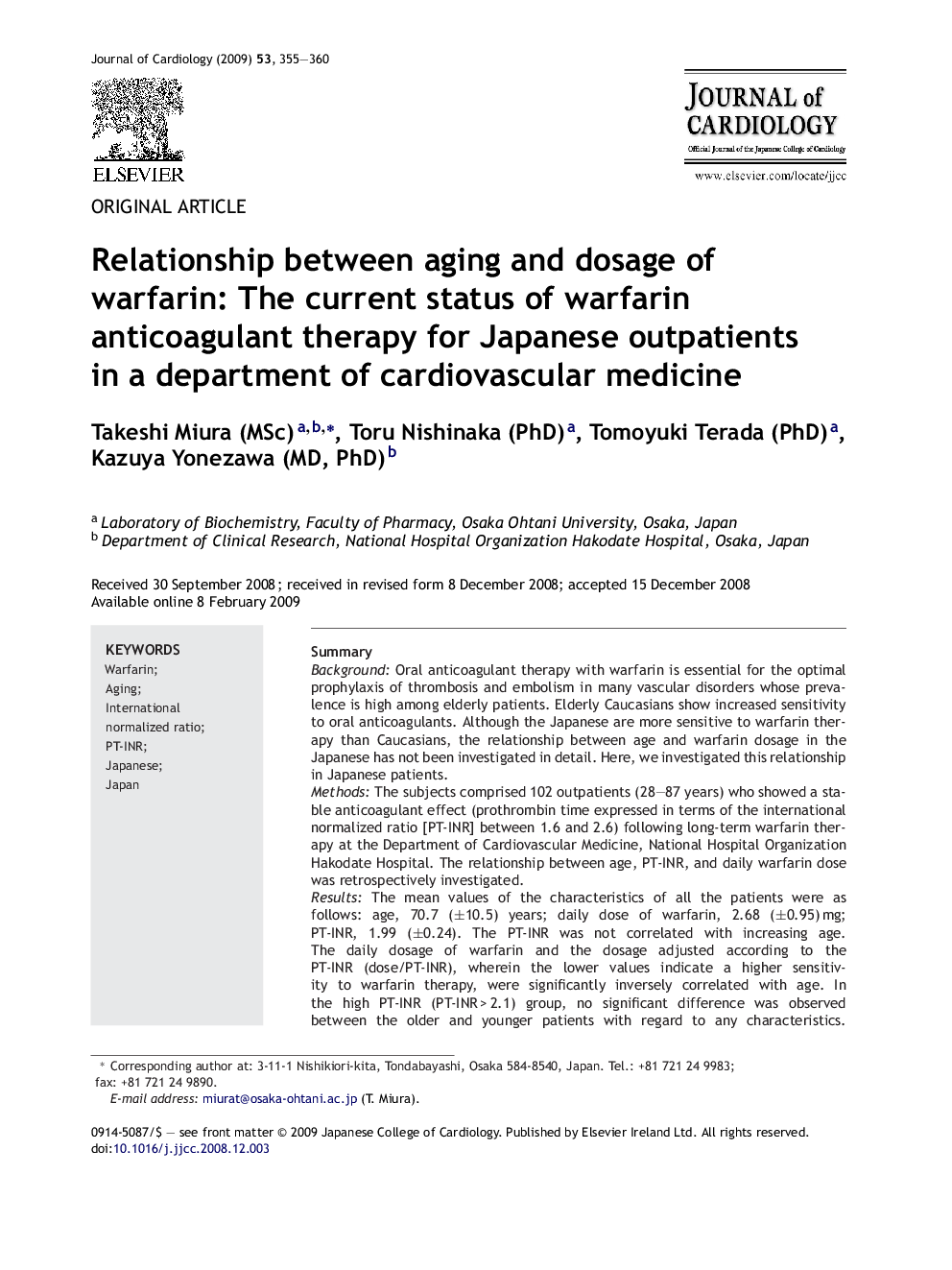| Article ID | Journal | Published Year | Pages | File Type |
|---|---|---|---|---|
| 2963633 | Journal of Cardiology | 2009 | 6 Pages |
SummaryBackgroundOral anticoagulant therapy with warfarin is essential for the optimal prophylaxis of thrombosis and embolism in many vascular disorders whose prevalence is high among elderly patients. Elderly Caucasians show increased sensitivity to oral anticoagulants. Although the Japanese are more sensitive to warfarin therapy than Caucasians, the relationship between age and warfarin dosage in the Japanese has not been investigated in detail. Here, we investigated this relationship in Japanese patients.MethodsThe subjects comprised 102 outpatients (28–87 years) who showed a stable anticoagulant effect (prothrombin time expressed in terms of the international normalized ratio [PT-INR] between 1.6 and 2.6) following long-term warfarin therapy at the Department of Cardiovascular Medicine, National Hospital Organization Hakodate Hospital. The relationship between age, PT-INR, and daily warfarin dose was retrospectively investigated.ResultsThe mean values of the characteristics of all the patients were as follows: age, 70.7 (±10.5) years; daily dose of warfarin, 2.68 (±0.95) mg; PT-INR, 1.99 (±0.24). The PT-INR was not correlated with increasing age. The daily dosage of warfarin and the dosage adjusted according to the PT-INR (dose/PT-INR), wherein the lower values indicate a higher sensitivity to warfarin therapy, were significantly inversely correlated with age. In the high PT-INR (PT-INR > 2.1) group, no significant difference was observed between the older and younger patients with regard to any characteristics. Conversely, in the low PT-INR (1.6 ≤ PT-INR ≤ 2.1) group, the dose/PT-INR was significantly reduced in the older patients (≥65 years); however, no significant difference was observed in the PT-INR value.ConclusionsBoth age and the controlled PT-INR value are factors responsible for the increasing sensitivity to warfarin in Japanese patients under optimal anticoagulant therapy. Since elderly Japanese patients with low PT-INR values are especially sensitive to warfarin, greater caution should be exercised while determining the dosage schedule in such patients.
